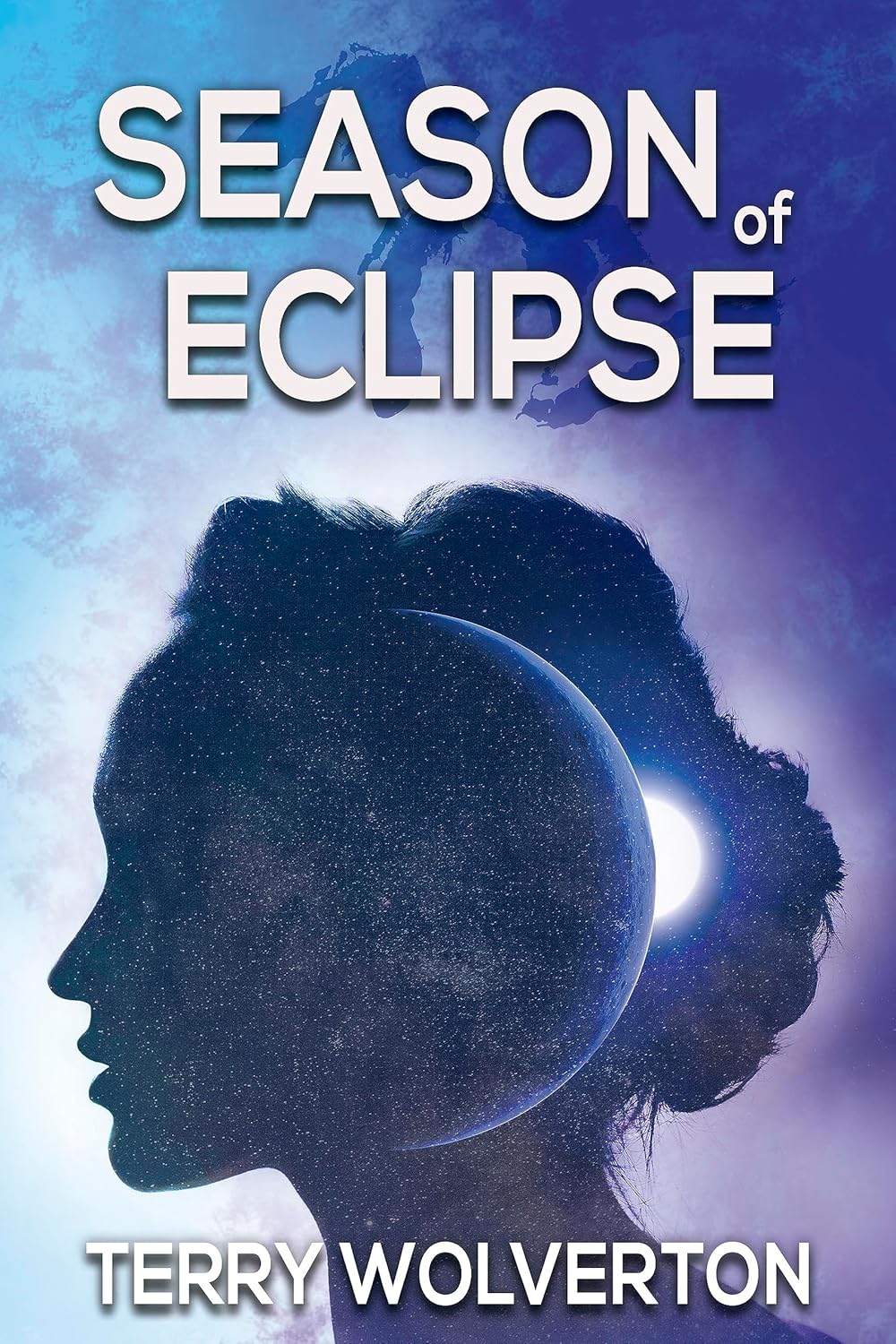Review of Season of Eclipse by Terry Wolverton

Season of Eclipse
Terry Wolverton
Bella Books, 2024, 292 pages
$18.95
Reviewed by Lucy Soth
I couldn’t put down Season of Eclipse by Terry Wolverton. In the novel, a famous author witnesses a terrorist act and must go into hiding. She finds herself fighting for her life against a vast and powerful conspiracy. While drawn in by the novel’s suspense and page-turning intrigue, I came away appreciating its quieter and more complex questions of identity and personal fulfillment.
Marielle Wing is a fifty-one-year-old author who pours herself into her work. While she has reached heights in her career, she lacks fulfillment in her personal life. We meet her disappointed, returning from a conference after losing a book award and engaging in a meaningless, self-destructive tryst with a much younger woman. At the airport, she witnesses an explosion and photographs the alleged perpetrators. Taking photos may seem an odd, detached choice in the wake of a near-death experience, and Marielle’s choices occasionally seem improbable. However, we soon realize that Marielle’s experience of life is fundamentally disconnected. She is overly preoccupied with her looks and her writing talents and very concerned with her public image. She lives in self-imposed isolation, with only her ex-girlfriend’s cat as a close companion. The narration is critical of Marielle, foregrounding her faults with biting clarity.
Soon after the attack, an FBI agent visits Marielle and informs her that she must enter witness protection to ensure her safety. Her death is announced to the public, and she is forced to assume a new identity as a humble Midwestern school teacher named Lorraine Kaminsky. Marielle must contend with the death of her public persona and the loss of everything that made her exceptional. This is an interesting premise in itself, in which a famous egoist must adopt an anonymous and ordinary life, and the strength of the novel lies in Marielle’s internal narrative during this rupture. Her vanity, impulsivity, and ego fight against the life-or-death demand of anonymity. Her flaws are deeply human. Most sympathetic is her unfulfilled need for connection—an open wound that she seems unable to acknowledge fully. Marielle is as multifaceted and realistic as she is occasionally frustrating. Unable to accept her circumstances, she fantasizes about her splashy return to public life. But her humdrum existence doesn’t stay ordinary for long, as she’s soon faced with new threats against her life—and still others against her legacy, as her publishers announce the pending release of a posthumous novel, one that Marielle didn’t write.
Marielle is not an immediately likeable character, and that’s what makes her growth so compelling. Over the course of the novel, she can only ensure her survival by letting go of every aspect of her identity. As readers, we bear witness to her metamorphosis, in which her exposure to grave danger forces her to become a new person, one who must accept vulnerability, who must trust and depend upon others, and who can finally be open to true connection.
Lucy Soth is a writer, researcher, and dog walker based in Washington, D.C. In her free time, she makes lampshades and undertakes ambitious beading projects.
"Empowerment comes from ideas."
― Charlene Carruthers
"Your silence will not protect you."
— Tourmaline
"Gender is the poetry each of us makes out of the language we are taught."
— Leila Raven


